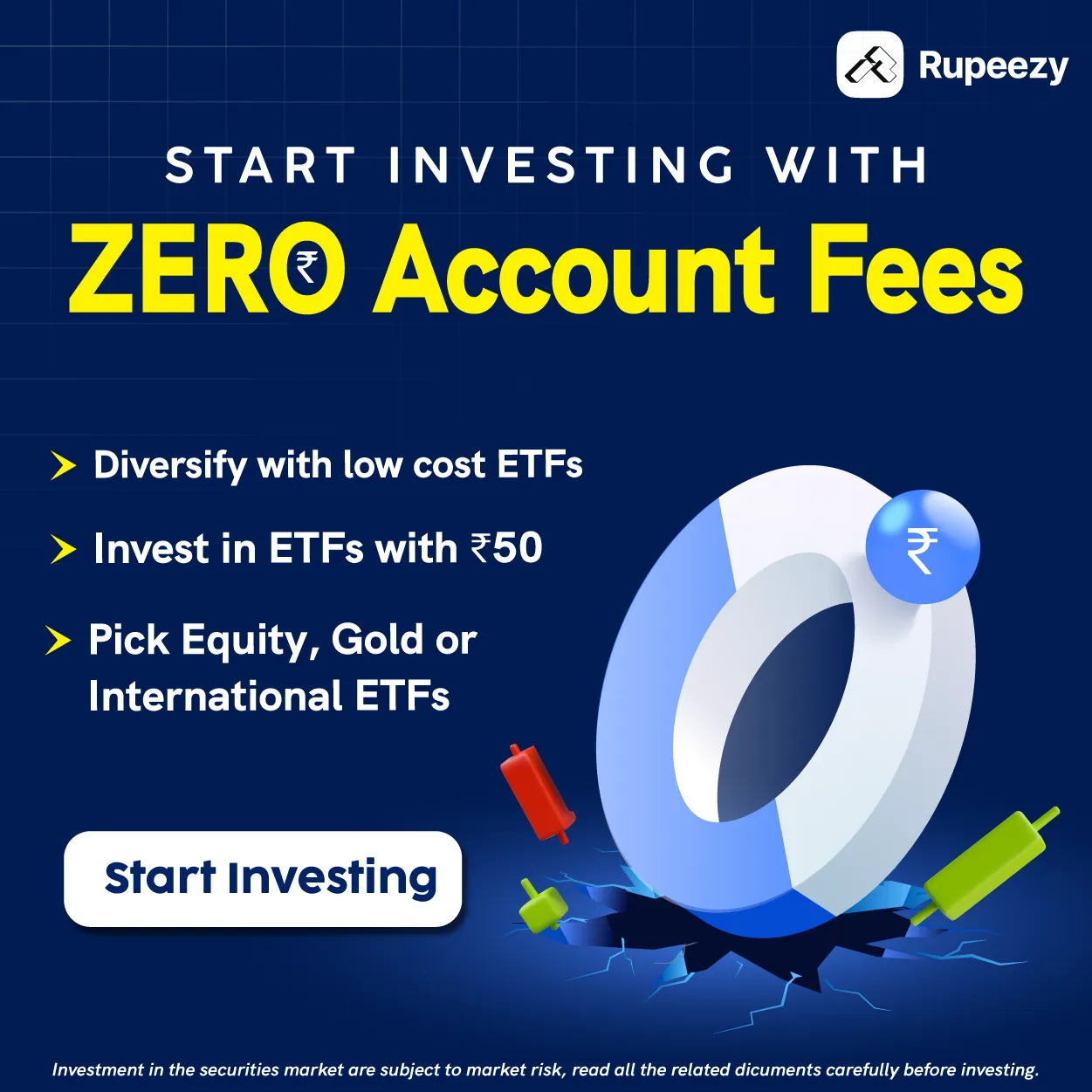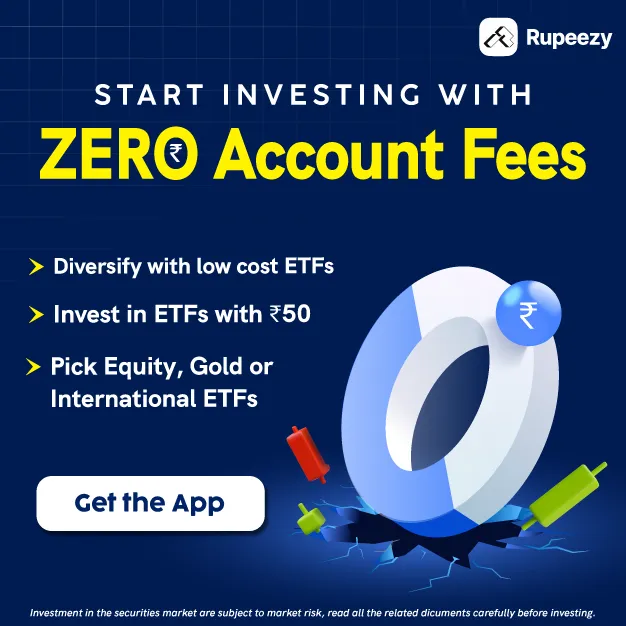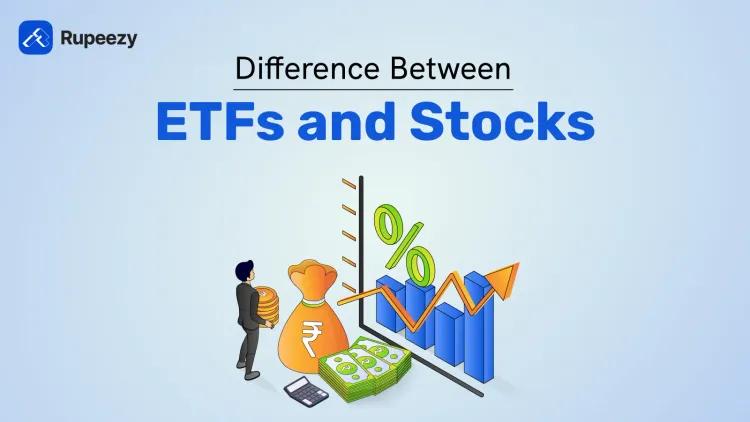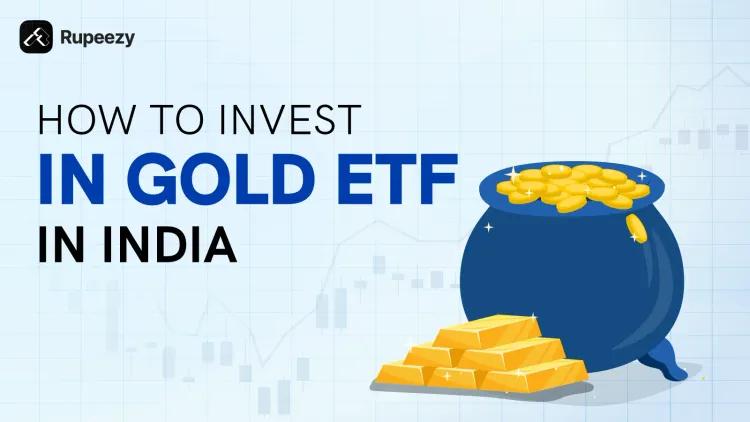ETF vs Index Fund - Differences and Which One to Choose?
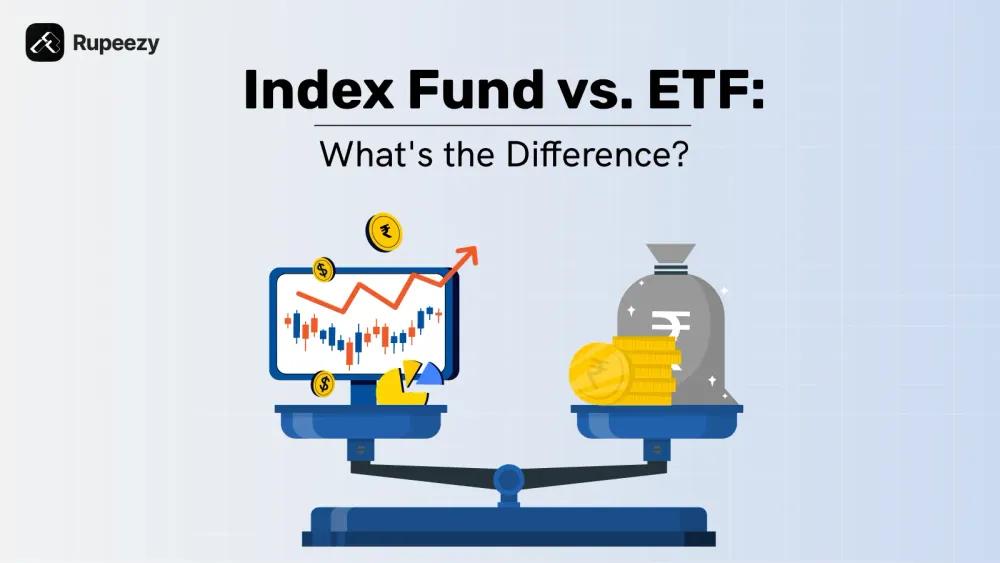

00:00 / 00:00
Financial freedom is something that everybody wants in today's world. However, due to their busy schedules, it has become hard to track and monitor their investment growth. This is the reason many investors today prefer investing in passive fund investment options. Among the various investment alternatives index funds and ETFs stand out. In this article, we will compare ETF vs Index funds in India to help investors choose the best passive investment opportunities that are suitable for them. Keep reading to find out more!
What are Index Funds?
Index funds are one of the top passive investment options for all investors. Index funds are a type of mutual fund that track the performance and growth of a particular stock market index such as Nifty or Sensex. Companies that form part of these indexes are invested in by these Index funds. Index funds are suitable for all investors who prefer long-term investments.
The investment portfolio of an Index fund will perform similarly to that of an index as an index fund mimics the constituent weightage of the index. You don't need to research stock selection or find ways to buy and sell it. This is what makes Index funds passive. On the other hand, if we were to invest in an actively managed mutual fund an investment manager would actively add or remove stocks to achieve the goals set for the mutual fund.
Characteristics of Index Funds
Index funds mimic a particular index profile instead of choosing different stocks for investment. Investors don’t need to actively engage in trading and portfolio management.
Index funds are the best passive fund investment opportunity that offers long-term growth.
Index funds include low operational costs because of their less engagement in trading and portfolio management.
Investors can have broad market exposure while investing in index funds.
Index funds offer transparency as they follow a market index that is available publicly.
What are ETFs?
An Exchange Traded Fund (ETF) is another passive fund investment option that offers the benefits of different investment options, like mutual funds and stocks. ETFs are similar to mutual funds but are traded like stocks in the market.
ETFs enable you to invest in different securities, such as equities, stocks, commodities, and bonds, at once. ETFs are suitable passive fund options as they require less brokerage commission than buying the same stocks that an ETF holds and also give you the flexibility to buy and sell anytime unlike mutual funds.
Characteristics of ETFs
ETFs are a combination of different market securities that trades like a particular stock.
Investors need a Demat account to invest in an ETF as it trades the same as a stock.
Investors can invest and withdraw their investment in ETFs whenever they need it.
Also Read: Top 10 ETF Funds in India
What is the Difference Between Index Fund and ETF
Here are a few key points to understand ETF vs Index Fund:
Features | Index Funds | ETFs |
Definition | Index funds are mutual fund investments that track and monitor the performance and growth of a particular stock market index such as Nifty or Sensex. Index funds are suitable for all investors who prefer long-term investments. | (Exchange-traded funds) ETFs are another passive fund investment option that offers the benefits of both mutual funds and stocks. They create a portfolio of various investments which is similar to mutual funds and at the same time, investors can invest and sell them just like stocks. |
Trading Options | Index funds are available to buy and sell at the end of the trading day. | ETFs are available to buy and sell the entire trading day during market timings. |
Demat Account Need | Index Funds don’t need any Demat account for investments and trading. | ETFs need a Demat account for investments and trading. |
Expense Ratio | Index Funds come with a higher expense ratio than exchange-traded funds. | Exchange-traded funds come with a lower expense ratio than Index funds. |
Investment Requirements | Index funds offer minimum investment criteria. For example, you will be required to make a minimum investment of Rs. 100, 500 etc. | Exchange-traded funds do not come with any minimum investment requirement criteria. |
Operation Costs | Index funds have no trading commission or brokerage charges. | Individuals investing in ETFs may also face brokerage charges. |
Flexibility | Index funds are not flexible like ETFs. | ETFs are more flexible than index funds as investors can buy and sell them anytime in the market. |
Index Fund vs ETF: Which One to Choose?
You should be aware of the major differences between ETFs and index funds to better understand them. Index funds are designed similarly to mutual funds and can be purchased directly from fund companies. They are valued using the net asset value (NAV) at the close of each trading day. This configuration encourages stability and is popular among long-term investors seeking consistent wealth building. Index funds often have lower expense ratios than actively managed funds, making them suitable for passive investment strategies.
On the other hand, ETFs trade on stock exchanges at prices determined by the market during the trading day, just like individual equities do. Thanks to this real-time trading capability, investors may buy and sell ETF shares whenever the market is open, allowing them to participate in tactical trading and quickly alter their portfolios. ETFs are appealing to active traders who wish to swiftly rebalance their holdings and profit from market movements.
While both index funds and exchange-traded funds (ETFs) offer diversified exposure to a broad variety of market indexes, their operational frameworks are designed to meet different investor requirements. While ETFs provide flexibility and liquidity for more aggressive trading strategies, index funds promote stability and long-term benefits. Which choice is selected depends on several factors, including risk tolerance, time horizons, and personal investing goals.
Check out our latest blogs "Best Gold ETF in India" and "How to Invest in Index Funds"
Wrapping Up
Index funds and ETFs are the best passive fund investment options that enable you to create strong investment portfolios while diversifying risks. It offers an ideal return on your investments. The difference between ETF and index funds lies in their investment mechanisms, which we have discussed earlier. Rupeezy has focussed on making your investment journey as seamless as possible and if you are looking to invest in either of them, Rupeezy gives you the option to invest in an ETF, and Rupeezy app helps you invest in index funds amongst other direct mutual funds. Happy Investing!
The content on this blog is for educational purposes only and should not be considered investment advice. While we strive for accuracy, some information may contain errors or delays in updates.
Mentions of stocks or investment products are solely for informational purposes and do not constitute recommendations. Investors should conduct their own research before making any decisions.
Investing in financial markets are subject to market risks, and past performance does not guarantee future results. It is advisable to consult a qualified financial professional, review official documents, and verify information independently before making investment decisions.

All Category

